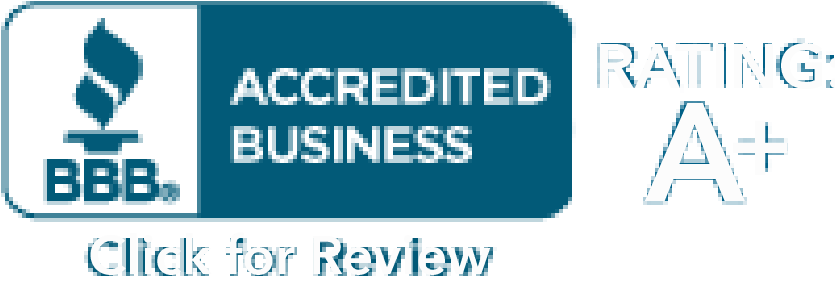Bankruptcy Questions & Answers
Free ConsultationWHAT HAPPENS ON THE FREE CONSULTATION?
When you come to one of our offices on the free consultation, we will have you complete a questionnaire explaining your financial condition and listing your creditors. After completing the form you will then meet with either Martin Lewis or Steven Jurnovoy. During the meeting, the attorney shall discuss with you your particular financial problems, options that may be available, and the availability of your assets (car, house, paycheck, pension, etc.), if any, to satisfy the claims of your creditors. The attorney shall attempt to answer every question you have regarding financial problems, bankruptcy, and other options that may be available to you in the State of Florida. Potential clients should not be scared to come into our office due to the inability to pay attorney fees. We know that a vast majority of our clients have financial problems and many are simply broke.
WHO MAY FILE BANKRUPTCY?
Any individual residing in the United States may file for bankruptcy. There is no requirement that you have a certain amount of debt. You may discharge your debt in a Chapter 7 bankruptcy once every eight years. A Chapter 13 bankruptcy may be filed any number of times, even if you filed a Chapter 7 bankruptcy in the past eight years.
Fill in your contact info and we will call you back ASAP
WHAT IS BANKRUPTCY?
Bankruptcy is a legal proceeding in which a person who cannot pay his or her bills can get a fresh financial start. Filing bankruptcy immediately stops all of your creditors from seeking to collect debts from you, at least until your debts are sorted out according to the law.
WHAT CAN BANKRUPTCY DO FOR ME?
Bankruptcy may make it possible for you to:
- Eliminate the legal obligation to pay most or all of your debts, such as credit cards, medical bills, signature loans, foreclosure and repossession deficiencies and judgements. This is called a “discharge” of debts.
- Stop foreclosure on your house or mobile home and allow you an opportunity to catch up on missed payments. (Bankruptcy does not, however automatically eliminate mortgages and other liens on your property without payment.)
- Prevent repossession of a car or other property, or force the creditor to return property even after it has been repossessed.
- Stop harassing telephone calls and letters wage garnishments, lawsuits and similar creditor actions to collect a debt.
CHAPTER 7 (STRAIGHT BANKRUPTCY)
In a bankruptcy case under chapter 7, you file a petition asking the court to discharge your debts. The basic idea in a chapter 7 bankruptcy is to wipe out (discharge) your debts to get a fresh start. Examples of debt which may be eliminated or wiped out are credit cards, medical bills, signature loans, home foreclosure or repossession deficiencies, certain past due taxes, and payday advance loans.In most cases, all of your property will be exempt. This means that you will keep all of your property. But property, which is not exempt, is sold, with the money distributed to creditors.
CAN I KEEP MY PROPERTY IN CHAPTER 7 BANKRUPTCY
One of the biggest myths about Chapter 7 is that you are going to lose all your property. Every state has “exemptions” or “allowances” that protect certain property. In reality, Florida is one of the friendliest states and in most cases all of your property may be protected. In general, the Florida exemptions allow you to keep your house (and any equity in your property). However, if you want to keep your house and you still owe money on it, you must continue to pay the loan.
Florida also has allowances to protect assets such as your car or truck, household goods and furnishings, IRAs, pension and profit sharing plans and other retirement plans. In the rare situation where you may have more property than can be protected by available exemptions, there are several options available so you may keep all your property.
While your exemptions allow you to keep property, the bankruptcy does not generally wipe out or eliminated mortgages, car loans or liens against your property. Therefore, if you want to keep a house or car, you need to keep paying the debt.
CHAPTER 13 (REORGANIZATION OR DEBT CONSOLIDATION)
In a chapter 13 case you file a “plan” showing how you will pay off some of your past due and current debts over three to five years. The most important thing about a chapter 13 case is that it will allow you to keep valuable property-especially your home and car-which might otherwise be lost if you can make the payments which the bankruptcy law requires to be made to your creditors. In most cases, these payments will be at least as much as your regular monthly payments on your mortgage or car loan, with some extra payments to get caught up on the amount you have fallen behind.
You should consider filing a chapter 13 plan if you:
- own your own home and are in danger of losing it because of money problems;
- are behind on debt payments, but can catch up if given some time;
- have valuable property, which is not exempt, but you can afford to pay creditors from your income over time.
WILL I HAVE TO GO TO COURT?
Yes. When your petition is filed, the Court will schedule a 341 Meeting of Creditors that you are required to attend. This is usually held at the Federal Court House. The Court mails notice of your bankruptcy to all of your creditors and tells them the date and time of this meeting. Your creditors have the right to appear at this meeting and ask you questions about your debt, however very few of them ever appear. The meeting is conducted by a Trustee, who is appointed by the court. The meeting lasts about 3 to 5 minutes. Your attorney will attend and represent you at this meeting.
WHO WILL FIND OUT ABOUT MY BANKRUPTCY?
Bankruptcy, just like most court proceedings, is a matter of public record. However, usually the only people who find out about it are your creditors. Sometimes bankruptcies are reported in newspapers if it is a business bankruptcy or if the person filing lives in a small community with a small local newspaper. If you file a Chapter 13 bankruptcy, your plan payments are usually made from a payroll deduction; therefore your employer will know you filed bankruptcy. It is unlawful for any employer to discriminate against you for filing bankruptcy.
WILL I EVER GET CREDIT AGAIN IF I FILE BANKRUPTCY?
Simply put, yes. Despite what the banks and credit card companies say publicly, bankruptcy will often improve your credit because it satisfies all of your debts in bankruptcy. A creditor looking to offer credit is more likely to lend to someone who has cleared their credit through a bankruptcy, than to someone who is still drowning in debt. Many of our clients tell us they receive offers for credit cards within months of filing bankruptcy, and are able to get a home mortgage within a year or so.
A bankruptcy filing may appear in your credit report for up to 10 years. After this 10-year period, it is up to you to make sure the bankruptcy is removed from your credit report, since some reporting agencies may not do this automatically. You do this by contacting your local credit reporting agency and by checking your credit report.
WHAT SHOULD I DO IF I OWE MONEY TO MY BANK OR CREDIT UNION?
If the bank or credit union at which you have checking or saving accounts is also a creditor (i.e. you have a loan, credit card account, or overdraft protection with the bank), then it is possible that the bank will put an “administrative freeze” on the funds in the account on the date the bankruptcy petition is filed. Such an administrative freeze will cause checks that have not cleared the bank to bounce. Therefore, you should open a new bank account with a bank whom you do not owe any money prior to filing bankruptcy and cease checking activity in the old account several weeks prior to filing the petition. It is not necessary that you close the old account, but you should remove all but a few dollars from the account. Any direct deposits into the account should be stopped prior to filing bankruptcy.
CAN A BANKRUPTCY STOP A CAR REPOSSESSION OR A FORECLOSURE?
Absolutely. The filing of a bankruptcy will automatically stay or stop collection procedures against you. Both a car repossession and a foreclosure are attempts to collect debts from you and are thus stopped by the filing of a bankruptcy case. Practically speaking, the creditor must receive some type of notice to know to stop collection proceedings. Generally, the bankruptcy court shall use a noticing center that shall forward a notice to you, all creditors, and co-debtors within 5 to 10 days of the filing of the case with the bankruptcy court. HOWEVER, Lewis & Jurnovoy, in order to avoid the time delay of mailing, shall contact certain creditors immediately upon the filing to make sure that the vehicle is not taken and the house foreclosed upon. These are EMERGENCY situations along with garnishments, seizure of bank accourts, contacting check cashing agencies which require the attorney to act quickly to protect assets. WE are prepared for those emergencies and handle them on a daily basis.
HOW DO I PAY THE ATTORNEY FEES?
In almost 100% of our Chapter 13 cases, Lewis & Jurnovoy place all of the attorney fees in the plan of repayment. This means that in almost every case, you pay our law firm no fees in advance. We are paid from the monies which you pay to the Trustee. The Trustee pays us along with all of the other creditors. Typically, you shall just pay your court costs ($185.00) when filing Chapter 13 through Lewis & Jurnovoy.
In Chapter 7 cases, we work out a payment arrangement with you for the payment of our legal fees and the court costs. We assist you in preparing a budget so you know which bills to pay and which ones not to pay. We do require a down payment when we start to work on your case. There is no minimum payment required. All fees quoted are on a case by case basis. We know that you are having severe financial problems or are just broke before you come in to see us. There is no desire to place additional pressure on you.
Once you have hired Lewis & Jurnovoy, we allow our clients to refer their creditors to us while we are in the preparing their case for court.
All fees paid in filed bankruptcy cases are subject to supervision by the United States Bankruptcy Court.
Pensacola Office
1100 North Palafox St.
Pensacola, FL 32501
850-432-9110
Google Map
Fort Walton Office
151 South Mary Esther Cutoff, Ste 103
Fort Walton Beach, FL 32569
850-863-9110
Google Map
Panama City Office
2714 West 15th Street
Panama City, FL 32401
850-913-9110
Google Map
Crestview Office
1501 S. Ferdon Blvd.
Crestview, FL 32536
850-409-3350
Google Map

We serve clients throughout the Florida Panhandle, Gulf Coast and Northwest Florida, including Pensacola, Cantonment, Milton, Century, Pace, Gulf Breeze, Navarre, Mary Esther, Fort Walton, Destin, Niceville, Crestview, Defuniak Springs, Santa Rosa Beach, Seaside, Marianna, Panama City, Port St. Joe, Lynn Haven, Wewahitchka and other communities in Escambia, Santa Rosa, Okaloosa, Walton, Bay, Calhoun, Gulf, Holmes, Jackson, Washington, Liberty and Franklin counties.

